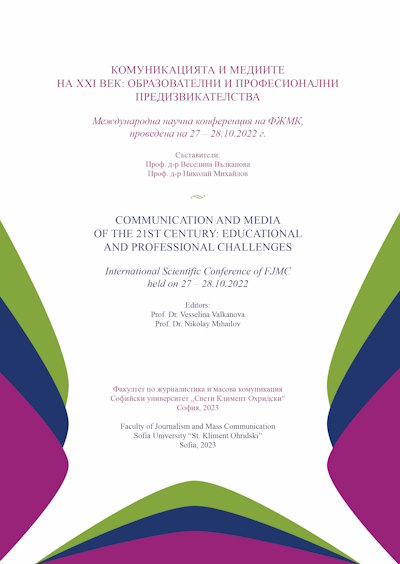National Media Systems and Communication Strategies in the 21st c. The Case of South East Asia in the Context of Geocommunication
National Media Systems and Communication Strategies in the 21st c. The Case of South East Asia in the Context of Geocommunication
Author(s): Ivelyna Vatova
Subject(s): Media studies, Communication studies, Theory of Communication
Published by: Факултет по журналистика и масова комуникация, Софийски университет „Св. Кл. Охридски”
Keywords: geocommunication; regionalism; nationalism; cosmopolitanism; national media systems; global holistic change; globalized status quo
Summary/Abstract: The geocommunication model is an innovative theoretical model in social science and relies on the perception and internalization of images in the flexible relationship between the World outside us and the World inside us in active persuasive communication in a dynamic, rapidly changing communication context. In this sense, geocommunication is a constant socialization-emancipating globally transformative process. The national media systems of the JIA countries are positioned in a wider and more complex systemic context as a structural element of the relevant communication strategy for the participation of the state as a subject of international communication and, therefore, an integral part of the national doctrine of development in the cosmopolitan world of the 21st century. The proposed text is part of a complex multifaceted study of the media images of countries from East, South, and Southeast Asia, unique to Bulgarian media studies, according to their national communication strategies, and was developed through an integral multidisciplinary methodology.
- Page Range: 70-80
- Page Count: 11
- Publication Year: 2023
- Language: English
- Content File-PDF

